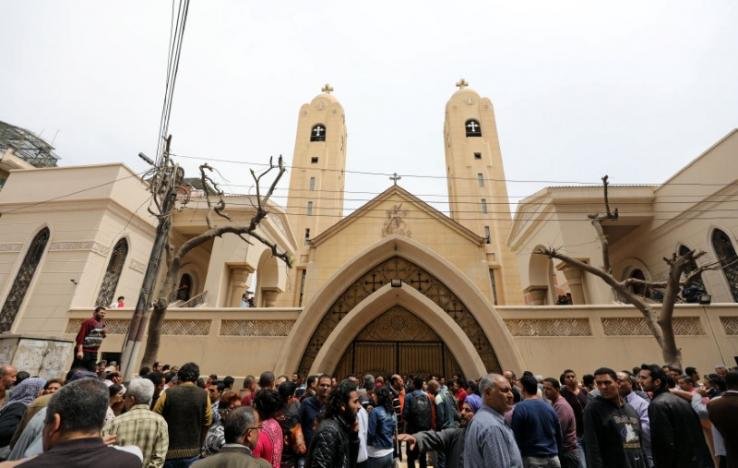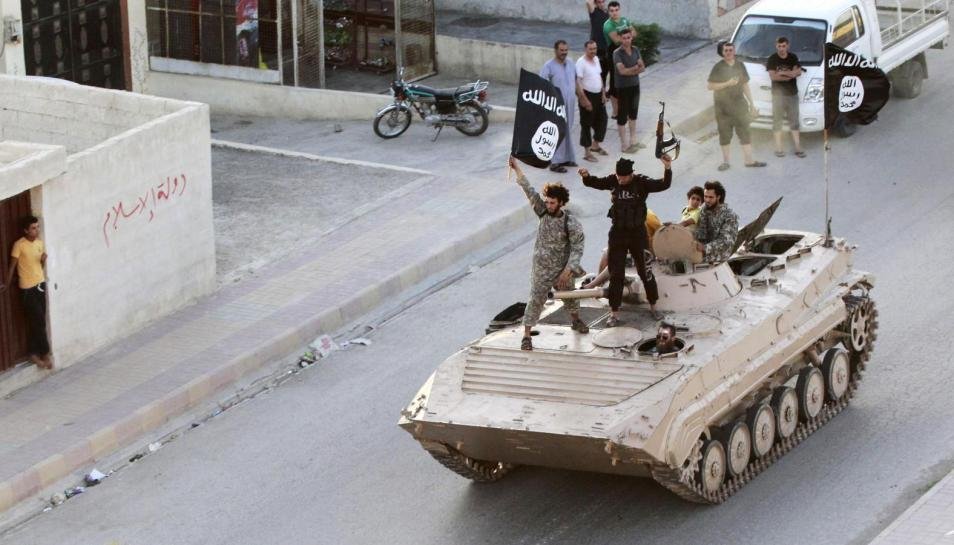Egypt today imposed a three-month state of emergency and ordered the military to protect vital infrastructure after the Islamic State terror group targeted two minority Coptic Christian churches in powerful bombings, killing at least 45 people and wounding more than 100 others.
As Egyptians bid tearful farewell to the those who died in the terror attacks on Palm Sunday, the Egyptian government declared that the state of emergency across the country will be effective from today.

Egypt’s Cabinet approved the measure – which allows authorities to make arrests without warrants and search people’s homes – and explained the reasons for the imposition of emergency.
The Cabinet said in a statement that the state of emergency “allows both the armed forces and the police to execute those procedures necessary to combat the threats of terrorism and its financing, maintain security around the country and protect public and private property, as well as preserving the lives of citizens,” Egyptian media reported.
The Cabinet’s approval came after President Abdel-Fattah al-Sisi in a brief television appearance last night announced the state of emergency for three months. Sisi said a top-level council for fighting terrorism and extremism will also be set up.
Before making the announcement, he had called a National Defence Council meet. Following the bombings at churches in Tanta and Alexandria cities, the government in its initial response ordered the military special forces to assist police in securing important state facilities across the country.
The security forces have been put on alert in anticipation of more attacks, the media reported. The Islamic State has claimed responsibility for the attacks in which the number of people killed has reached 45 after a person injured in the bombing at Tanta died.

More than 100 people remained injured, according to Egyptian authorities. The first blast took place in the Coptic church of Mar Girgis, also known as St George, in the Nile delta city of Tanta, about 120 kilometres from Cairo, and killed 27 people and injured 78, according to the Egyptian Health Ministry.
Hours later, a suicide bomber struck the Saint Mark’s Coptic Orthodox Cathedral in Alexandria’s Manshyia district. Citing Health Minister Ahmed Emad, ON TV news channel reported at least 18 people, including police personnel, were killed and 41 injured in the suicide attack in Alexandria.
The blasts have come ahead of the visit of Pope Francis to Egypt on April 28-29, and prompted international condemnation. Al-Azhar, the world’s highest seat of Sunni Islam, called the attacks an “outrageous crime” against all Egyptians.
“This terrorist attack is devoid of all the principles of humanity and civilisation,” it said in a statement. The US Embassy in Egypt condemned “the heinous, reprehensible terrorist attack against peaceful worshippers.”
“The US stands firmly with the Egyptian government and people to defeat terrorism,” the Embassy said in a statement.
Coptic Christians make up about 10 per cent of Egypt’s population of 85 million. Egypt’s Christian minority has often been targeted by Islamist militants. In December, a suicide bombing claimed by an IS affiliate killed 29 people during Sunday mass in Cairo.
Egypt has seen a wave of attacks by militants since 2013 when the military toppled president Mohammed Morsi, an elected leader who hailed from the Muslim Brotherhood, and launched a crackdown against Islamists. Palm Sunday falls on the Sunday before the Easter.
The feast commemorates Jesus’ triumphal entry into Jerusalem, an event mentioned in each of the four canonical Gospels.
Feature Image Source: Reuters

















